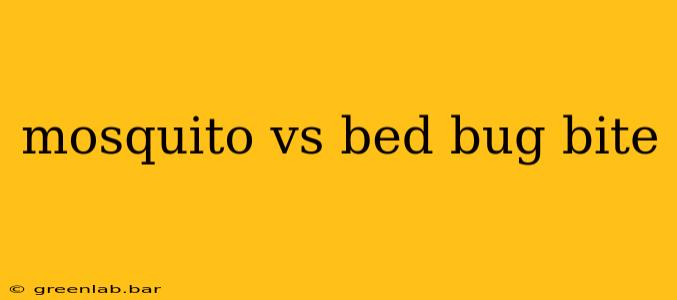Itching, redness, and welts – these are common symptoms of both mosquito and bed bug bites. Distinguishing between the two can be tricky, especially since reactions vary from person to person. This comprehensive guide will help you identify the culprit and take appropriate action.
Identifying the Culprit: Mosquito vs. Bed Bug Bites
While both leave behind itchy bumps, there are key differences to look for:
Mosquito Bites
- Appearance: Mosquito bites typically appear as small, red bumps, often with a single puncture mark in the center. They're usually raised and can be quite itchy. The size and appearance can vary depending on individual reactions and the mosquito species.
- Location: Mosquitoes bite exposed skin, often on the arms, legs, and face. They're attracted to carbon dioxide and body odor, so bites tend to cluster in areas where these are more prevalent.
- Timing: Mosquito bites often occur outdoors, during the evening or night, and are usually noticed soon after the bite.
- Multiple Bites: Mosquitoes generally leave multiple bites in a relatively small area. However, the bites are often not clustered as tightly as bed bug bites.
Bed Bug Bites
- Appearance: Bed bug bites often appear as a series of small, red, itchy welts in a row or cluster. Unlike mosquito bites, they frequently lack a central puncture mark. Individual reactions vary, with some showing only minor irritation while others experience significant swelling.
- Location: Bed bugs prefer to bite exposed skin while you sleep. Common areas include the neck, shoulders, arms, and hands. They often avoid hairy areas. They tend to bite in lines or clusters.
- Timing: Bed bug bites are typically discovered in the morning after a night's sleep, as bites occur while you're sleeping.
- Multiple Bites: Bed bugs feed multiple times during a single night, leaving multiple bites in close proximity – often in a zig-zag or linear pattern.
Beyond the Visual: Other Clues
While visual inspection is crucial, additional factors can help you determine the source of the bites:
- Presence of Insects: Have you seen any mosquitoes or bed bugs? Mosquitoes are easy to spot, while bed bugs are small, flat, brown insects that hide in mattresses, box springs, and furniture. Checking your bedding and furniture carefully is essential.
- Travel History: Recent travel to areas with high mosquito populations increases the likelihood of mosquito bites. Similarly, staying in hotels or other lodging can expose you to bed bugs.
What to Do if You're Bitten
Regardless of whether you've been bitten by a mosquito or a bed bug, itching is a common problem. Here’s what you can do:
- Wash the area: Gently clean the bites with soap and water to prevent infection.
- Apply a cold compress: Reducing inflammation and itching.
- Over-the-counter treatments: Calamine lotion, hydrocortisone cream, or antihistamine creams can help relieve itching and reduce swelling.
- Oral antihistamines: If itching is severe, an oral antihistamine might provide relief.
When to See a Doctor
While most bites are harmless, consult a doctor if:
- You experience a severe allergic reaction (difficulty breathing, swelling of the face or throat).
- The bites become infected (increased pain, swelling, pus).
- The itching is unbearable and doesn't respond to home remedies.
This information is for guidance only and does not substitute professional medical advice. If you're uncertain about the cause of your bites or experience any concerning symptoms, consult a healthcare professional for accurate diagnosis and treatment.

